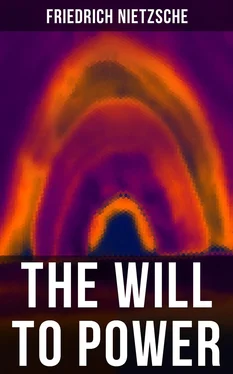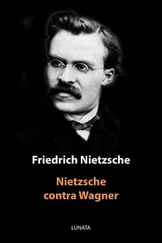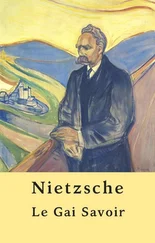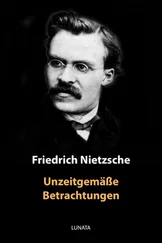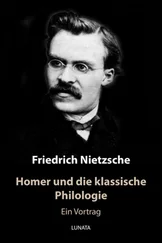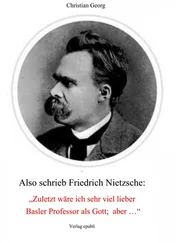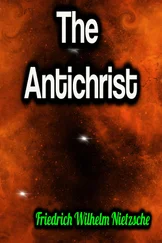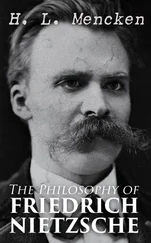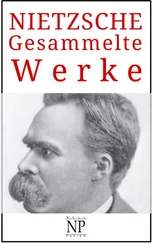Under the empire of Christian prejudice this question was never put at all : the purpose of life seemed to lie in the salvation of the individual soul; the question whether humanity might last for a long or a short time was not considered. The best Christians longed for the end to come as soon as possible;—concerning the needs of the individual, there seemed to be no doubt whatsoever. ... The duty of every individual for the present was identical with what it would be in any sort of future for the man of the future: the value, the purpose, the limit of values was for ever fixed, unconditioned, eternal, one with God.... What deviated from this eternal type was impious, diabolic, criminal.
The centre of gravity of all values for each soul lay in that soul itself: salvation or damnation! The salvation of the immortal soul! The most extreme form of personalisation.... For each soul there was only one kind of perfection; only one ideal, only one road to salvation.... The most extreme form of the principle of equal rights, associated with an optical magnification of individual importance to the point of megalomania ... Nothing but insanely important souls, revolving round their own axes with unspeakable terror....
***
Nobody believes in these assumed airs of importance any longer to-day: and we have sifted our wisdom through the sieve of contempt. Nevertheless the optical habit survives, which would fain measure the value of man by his proximity to a certain ideal maw. at bottom the personalisation view is upheld as firmly as that of the equality of rights as regards the ideal. In short: people seem to think that they know what the ultimate desideratum is in regard to the ideal man....
But this belief is merely the result of the exceedingly detrimental influence of the Christian ideal, as anybody can discover for himself every time he carefully examines the "ideal type." In the first place, it is believed that the approach to a given "type" is desirable; secondly, that this particular type is known; thirdly, that every deviation from this type is a retrograde movement, a stemming of the spirit of progress, a loss of power and might in man.... To dream of a state of affairs in which this perfect man will be in the majority: our friends the Socialists and even Messrs. the Utilitarians have not reached a higher level than this. In this way an aim seems to have crept into the evolution of man: at any rate the belief in a certain progress towards an ideal is the only shape in which an aim is conceived in the history of mankind to-day. In short: the coming of the " Kingdom of God " has been placed in the future, and has been given an earthly, a human meaning—but on the whole the faith in the old ideal is still maintained....
340.
The more concealed forms of the cult of Christian, moral ideals. —The insipid and cowardly notion "Nature" invented by Nature-enthusiasts (without any knowledge whatsoever of the terrible, the implacable, and the cynical element in even "the most beautiful" aspects), is only a sort of attempt at reading the moral and Christian notion of "humanity" into Nature;—Rousseau's concept of Nature, for instance, which took for granted that "Nature" meant freedom, goodness, innocence, equity, justice, and Idylls, was nothing more at bottom than the cult of Christian morality. We should collect passages from the poets in order to see what they admired, in lofty mountains, for instance. What Goethe had to do with them—why he admired Spinoza. Absolute ignorance concerning the reasons of this cult....
The insipid and cowardly concept "Man" à la Comte and Stuart Mill, is at times the subject of a cult.... This is only the Christian moral ideal again under another name.... Refer also to the freethinkers—Guyau for example.
The insipid and cowardly concept "Art" which is held to mean sympathy with all suffering and with everything botched and bungled (the same thing happens to history, cf. Thierry): again it is the cult of the Christian moral ideal.
And now, as to the whole socialistic ideal : it is nothing but a blockheaded misunderstanding of the Christian moral ideal.
341.
The origin of the ideal. The examination of the soil out of which it grows.
A. Starting out from those "æsthetic" mental states during which the world seems rounder, fuller, and more perfect : we have the pagan ideal with its dominating spirit of self-affirmation ( people give of their abundance ). The highest type: the classical ideal—regarded as an expression of the successful nature of all the more important instincts. In this classical ideal we find the grand style as the highest style. An expression of the "will to power" itself. The instinct which is most feared dares to acknowledge itself.
B. Starting out from the mental states in which the world seemed emptier, paler, and thinner, when "spiritualisation" and the absence of sensuality assume the rank of perfection, and when all that is brutal, animal, direct, and proximate is avoided ( people calculate and select ): the "sage," "the angel"; priestliness = virginity = ignorance, are the physiological ideals of such idealists: the anæmic ideal. Under certain circumstances this anæmic ideal may be the ideal of such natures as represent paganism (thus Goethe sees his "saint" in Spinoza).
C. Starting out from those mental states in which the world seemed more absurd, more evil, poorer, and more deceptive, an ideal cannot even be imagined or desired in it ( people deny and annihilate ); the projection of the ideal into the sphere of the anti-natural, anti-actual, anti-logical; the state of him who judges thus (the "impoverishment" of the world as a result of suffering: people take, they no longer bestow ): the anti-natural ideal.
(The Christian ideal is a transitional form between the second and the third, now inclining more towards the former type, and anon inclining towards the latter.)
The three ideals: A. Either a strengthening of Life ( paganism, ) or B. an impoverishment of Life ( anæmia ), or C. a denial of Life ( anti-naturalism ). The state of beatitude in A. is the feeling of extreme abundance; in B. it is reached by the most fastidious selectiveness; in C. it is the contempt and the destruction of Life.
342.
A. The consistent type understands that even evil must not be hated, must not be resisted, and that it is not allowable to make war against one's self; that it does not suffice merely to accept the pain which such behaviour brings in its train; that one lives entirely in positive feelings; that one takes the side of one's opponents in word and deed; that by means of a superfœtation of peaceful, kindly, conciliatory, helpful, and loving states, one impoverishes the soil of the other states, ... that one is in need of unremitting practice. What is achieved thereby?—The Buddhistic type, or the perfect cow.
This point of view is possible only where no moral fanaticism prevails—that is to say, when evil is not hated on its own account, but because it opens the road to conditions which are painful (unrest, work, care, complications, dependence).
This is the Buddhistic point of view: there is no hatred of sin, the concept "sin," in fact, is entirely lacking.
B. The inconsistent type. War is waged against evil—there is a belief that war waged for Goodness' sake does not involve the same moral results or affect character in the same way as war generally does (and owing to which tendencies it is detested as evil). As a matter of fact, a war of this sort carried on against evil is much more profoundly pernicious than any sort of personal hostility; and generally, it is "the person" which reassumes, at least in fancy, the position of opponent (the devil, evil spirits, etc.). The attitude of hostile observation and spying in regard to everything which may be bad in us, or hail from a bad source, culminates in a most tormented and most anxious state of mind: thus "miracles," rewards, ecstasy, and transcendental solutions of the earth-riddle now became desirable . ... The Christian type: or the perfect bigot .
Читать дальше
